How well do horses understand us? Can they understand what our intentions are? Research is showing they certainly can. This means they can analyze our actions and make predictions about what our next step will be, adjusting their behavior accordingly.
Lea Lansade, PhD, from the French Horse and Riding Institute as well as the National Institute for Agricultural Research, conducted a study to see exactly how much horses can predict our goals and understand our intentions. Through a series of tests, she hoped to see not only if horses can understand intentions but actually prove it on a scientific level.
In her study, Lansade observed 21 riding horses and how they reacted when presented the chance of carrot slices. The horses were presented with the carrot slices in three very different scenarios, however each time by an unfamiliar human and while separated by a clear divider. Lansade and her team carefully watched the exchange between the horses and the unfamiliar human.
In the first test, the human held the carrot near the horse but moved it out of reach when the horse went to take it, taunting it. In the second test, the human went to hand the horse the carrot but had difficulty due to the divider. In the third test, the human tried giving the horse the carrot but kept dropping it. In the first test, the human had no clear intention of ever giving the horse the carrot. However in the second and third tests, the intention to give the horse the carrot was there, the human was just presented with difficulty in doing so.
As this study would show, the horses clearly knew when the human had intentions of giving them the carrots, and when they had no intention of giving them the carrots. This was apparent during the behavior observed during these interactions.
Lansade observed that when the human didn’t want to give the horse the carrots (and instead pulled them away) the horses would become disinterested and direct their attention away from the human. However, when the human tried to give the horse the carrots, but couldn’t due to an obstruction/dropping the carrots, the horses would actually touch the window and wait for a possible treat.
In these scenarios, it was clear to Lansade that the horses understood the intentions of the human. When they felt the human was never going to give them the carrot, they turned away and didn’t invest any time in waiting around to find out. In short, they were quick to give up. When they felt the human had the intention of giving the carrot, they waited, hoping for a positive outcome. They based their behavior on what they were able to observe, and then predict, during their interaction with the human.
Lansade’s study is the first of its kind, as up until this point there had not been any previous studies that show horses understand the intention. As humans work on relating to and understanding horses more, studies such as Lansade's will become more important.
Horse Courses by Elaine Heney
- Listening to the Horse - The Documentary by Elaine Heney & Grey Pony Films
- Shoulder In & Out Training for better balance, bend & topline development with your horse
- Over 110+ Polework Exercises & Challenges to Download
- Dancing at Liberty & Creating Connection with Your Horse (11 lessons) - Grey Pony Films

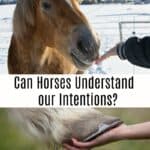

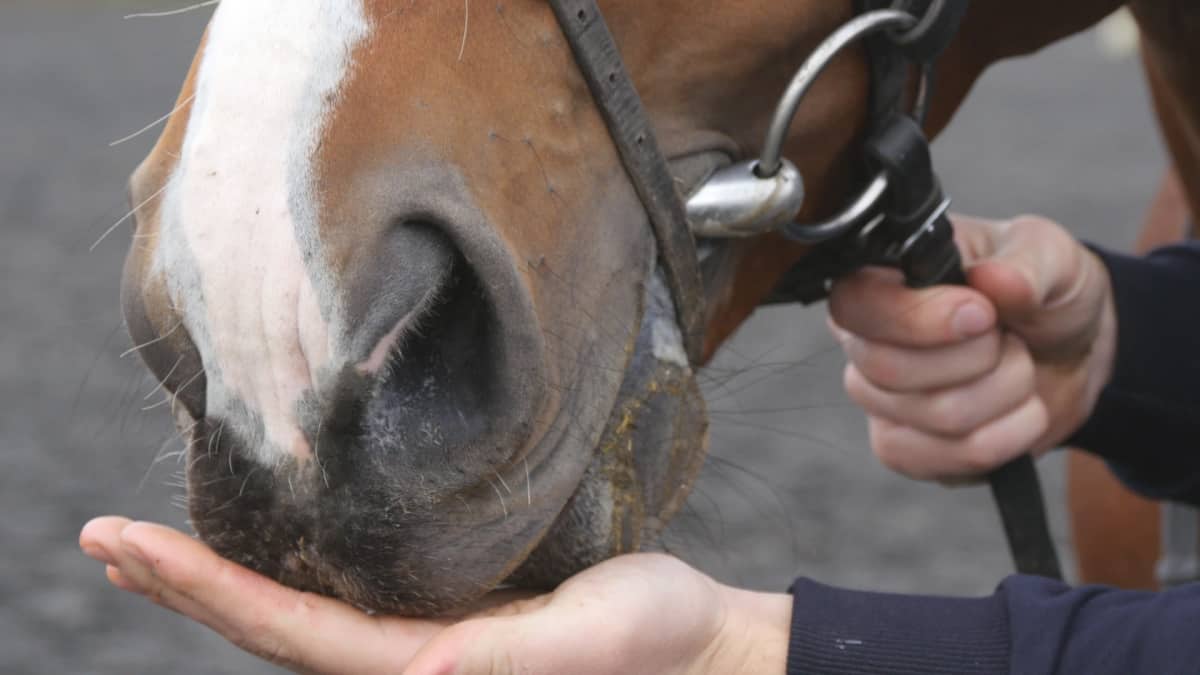
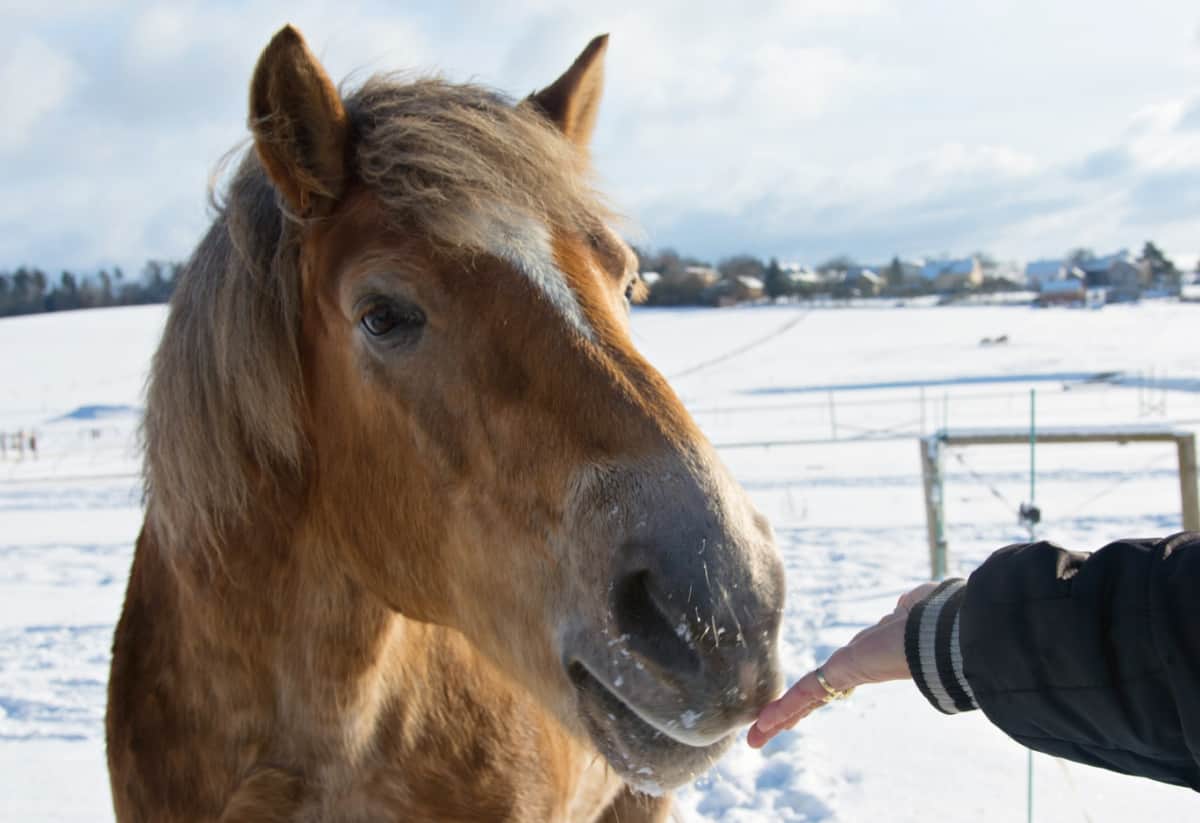
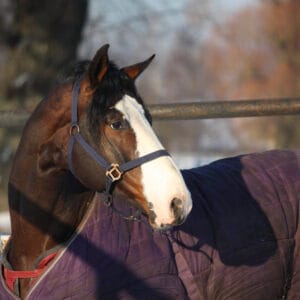
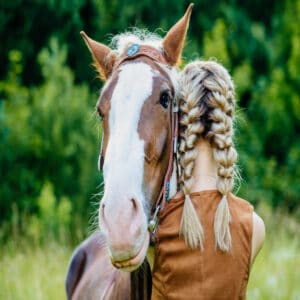

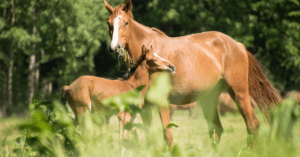
Diane
I was wondering if you have any suggestions: my high spirited aggressive mare who loves to be loved always try’s to push me with her body to the left. Pinning me against the wall while I’m grooming her in cross ties. Once she thinks I’m close to the wall she paws with her left leg. All this is dangerous for me. I’ve pushed her, I’ve yelled at her, I’ve grabbed her head. She’ll stop after the 2nd to 3rd time. Apparently I’m not making something clear to her. She’s very strong willed/so am I! Please help